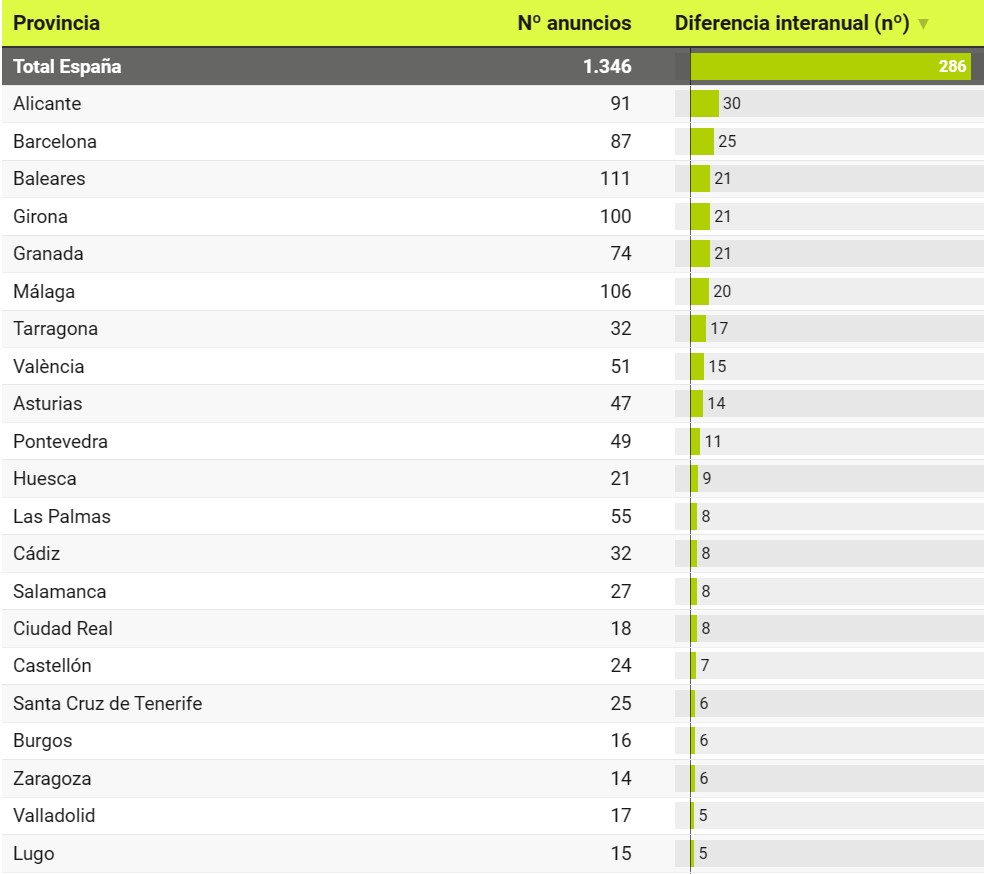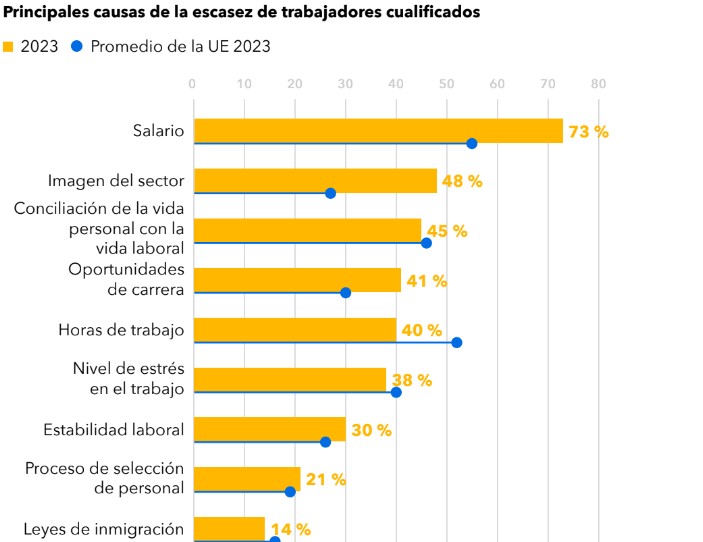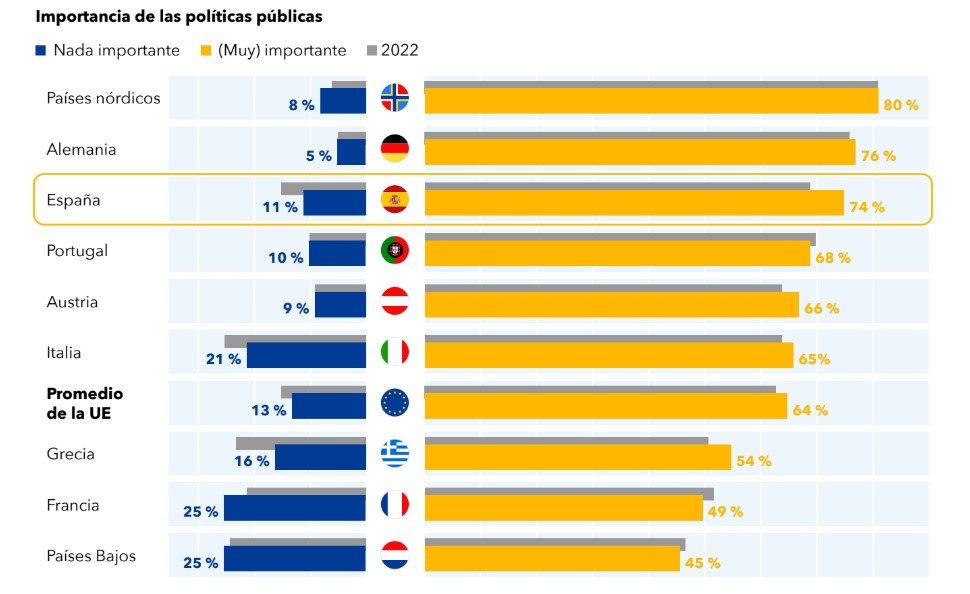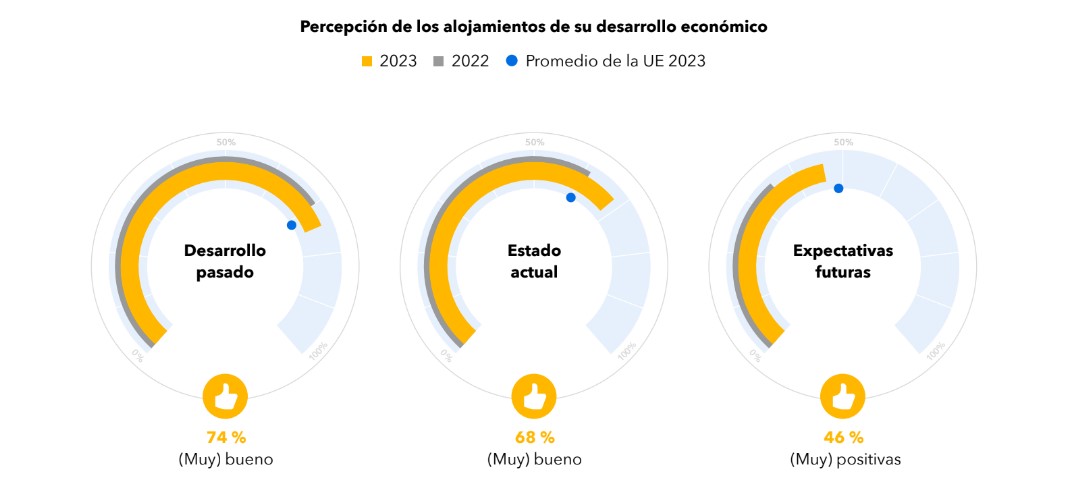The tourism sector in Spain is in a moment of change and evolution. While the summer of 2023 has brought a resurgence in the travel and lodging industry, economic realities and other factors have posed unexpected challenges for many in the industry.
The recovery in the tourism sector has been welcome after several difficult years marked by the COVID-19 pandemic and travel restrictions. Travel has returned without confinement or restrictions around the world, and Spain, as one of Europe’s most popular holiday destinations, has seen a steady stream of visitors. However, despite the apparent good news, there are dark clouds on the horizon that have led many to rethink their participation in the industry.
Today, from ABAL Consulting, we want to analyze the forecasts of the tourism sector in Spain and its reality through surveys and reports carried out by hotel chains.
Economic situation in the tourism sector
The economic situation in Spain’s tourism sectoris a critical factor influencing decision making and investments. Optimism has returned to the industry after difficult times, but there is also a constant need to evaluate and adjust strategies as economic circumstances change.
A 2023 Tourism Accommodation Barometer Report on Booking.com noted that the large hotel chains are looking to the future with great optimism and are earning much more than independent hotels per property. This has led to an important conclusion: professional management is necessary if you do not want to end up selling the property to a large hotel chain for lack of profitability.
In this sense, property management has become crucial for survival in the tourism industry. Owners and managers of independent hotels are increasingly recognizing the importance of having an business intelligence software that measures the full economic performance of your property at 360°. This allows them to make decisions and optimize management to maintain profitability.
One striking aspect is the significant increase in the number of licensed hotel establishments for sale in Spain. According to data from IdealistaBy the end of August 2023, the number of hotels for sale had increased by 26.98% compared to the previous year, exceeding 1,300 listings. This trend is especially noticeable in provinces such as the Balearic Islands, Malaga and Girona, which have more than a hundred hotels in the market. As the supply of hotels for sale increases, the question arises as to how to adapt and survive in this changing environment.

It is important to note that not all provinces are equally affected. Inland regions have a much more limited supply. This phenomenon could be related to the perception that coastal areas are more prone to tourism recovery, while inland regions may face more difficulties in attracting visitors. However, each property is unique and sales decisions are based on a variety of factors.
One of the aspects highlighted in the report is the willingness of Spanish hoteliers to invest in their businesses. 70% of respondents plan to invest more in the next six months. This investment may include facility improvements, the acquisition of new properties or the implementation of technology to improve operating efficiency. It is a positive sign that players in the tourism industry are willing to adapt and evolve to meet challenges and take advantage of opportunities.
Challenges and opportunities in the Spanish tourism sector
The tourism sector in Spainas we have already said, is in a period of transformation and evolution. There are a number of challenges and opportunities that are fundamental to understanding how the The tourism sector in Spain is adapting and moving into the future.
Challenges
- Economic uncertainty. Although travel demand is high, inflation and other economic problems are putting pressure on hotel and lodging profit margins. This has led to an increase in operating costs, which has reduced the profitability of many establishments. The increase in energy costs is one of the priorities in the investment to reduce operating expenses.
- Competence. Hotels and accommodations compete to attract visitors in a saturated market. Differentiation and offering unique experiences have become a necessity to stand out in this competitive environment.
- Shortage of qualified personnel. The tourism sector faces difficulties in attracting and retaining qualified personnel. Lack of workers in key areas, such as hotels and restaurants, may adversely affect the quality of service.

Booking.com Spain Accommodation Barometer Summer 2023. (n.d.). Statista. Retrieved October 11, 2023, from https://www.statista.com/study/136829/barometro-del-alojamiento-en-espana-verano-2023/ - Regulación. Changes in legislation may have an impact on the profitability and viability of businesses in this sector. 74% of Spanish hoteliers recognize the importance of government policies compared to 64% of the European average. However, there are also concerns about the impact of new taxes and general economic policies on the tourism sector.

Booking.com Spain Accommodation Barometer Summer 2023. (n.d.). Statista. Retrieved October 11, 2023, from https://www.statista.com/study/136829/barometro-del-alojamiento-en-espana-verano-2023/
Oportunities
- Comprehensive consulting. As more travelers use the Internet to search for and book accommodations, online and social media marketing activities offer opportunities to reach new customers and promote establishments. 29% of Spanish hoteliers plan to invest more in digital transformation in the next six months, outperforming the 26% European average.
- Generation Z. These young travelers are looking for authentic and unique experiences, which gives hotels the opportunity to diversify their offerings and attract a broader audience.
- Additional Services. Local experiences, customized tours or exclusive packages can generate additional revenue and improve customer satisfaction.
- Sustainability. Travelers are increasingly interested in environmentally friendly options, and hotels can stand out by adopting sustainable practices. Energy efficiency is a priority due to rising energy prices. Spanish hoteliers show a willingness to invest in sustainability slightly above the European average.
Government policy also plays an important role in promoting sustainability. Seventy-four percent of Spanish hoteliers recognize the importance of government policies in this regard, compared to 64% of the European average. However, there are also concerns about the impact of new taxes and general economic policies on the tourism sector.
The future of the tourism sector in Spain
In spite of these challenges, the recovery of the tourism sector in Spain remains strong and promising in many respects. Travel has returned without restrictions, and the hotel industry is experiencing an increase in occupancy. Our country continues to be an attractive destination for domestic and international travelers.
The 2023 Tourism Accommodation Barometer also revealed that 74% of respondents in Spain have a positive outlook for the past six months, slightly exceeding the European average of 71%. This reflects the optimism in the sector. However, in order to thrive, it is important that players in the industry are willing to adapt and evolve. Adapting to economic and technological changes, as well as a commitment to sustainability, are key to ensuring a prosperous future for the hotel industry in Spain.

The tourism sector in Spain faces constantly evolving challenges and opportunities. As optimism mixes with economic uncertainty, industry players must be prepared to adapt and evolve.
The key to a prosperous future lies in:
– the ability to effectively manage properties
– embracing digital transformation
– to meet the demands of Generation Z
– offer additional services
– prioritizing sustainability and profitability.
Despite the challenges, the solid recovery and optimistic outlook suggest that Spain will continue to be an attractive tourist destination in the coming months and years.
From ABAL Consulting we carry out profitability studies in which we explain in detail the elements that we consider key to a value proposition for owners and managers of lodging businesses, demonstrating why ABAL Consulting and our ABAL MyReports business technology is the most attractive option.
Check our success stories if you want to be the next one 😉





 by
by 
